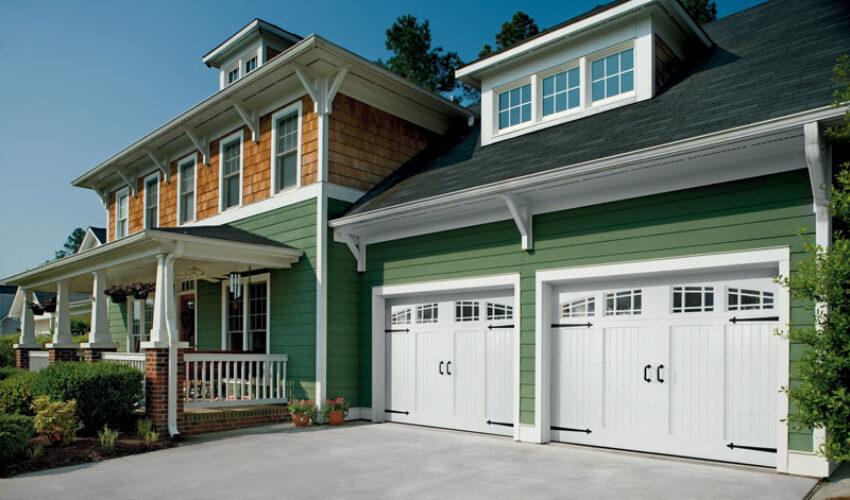Is your garage door refusing to budge? Dealing with a malfunctioning garage door can be frustrating, especially when you’re in a rush or need to secure your vehicle. Fortunately, understanding the common reasons behind a garage door’s failure to open or close can help you diagnose and address the issue promptly. In this article, we’ll explore the ten most common causes for a non-responsive garage door, providing you with valuable insights and practical solutions.

- Power Interruption
- Check if the garage door opener is plugged in and receiving power.
- Inspect the circuit breaker or fuse box for any tripped breakers or blown fuses.
- Consider a power surge or outage that might have affected the opener’s functionality.
- Dead Batteries
- Examine the remote control batteries and replace them if necessary.
- Ensure that the wall-mounted control panel has functional batteries as well.
- Weak batteries can prevent the garage door from responding to commands.
- Misaligned Safety Sensors
- Verify if the safety sensors, typically located near the bottom of the garage door tracks, are aligned properly.
- Remove any debris obstructing the sensor’s path.
- Clean the sensors and check for any damaged wiring.
- Blocked Photo-Eye
- The photo-eye sensors can accumulate dirt or debris over time, obstructing the beam.
- Clean the sensors gently using a soft cloth or compressed air.
- Make sure nothing is blocking the sensors’ line of sight.
- Broken Torsion Springs
- Torsion springs support the weight of the garage door and enable smooth operation.
- If you notice a broken or stretched torsion spring, contact a professional to replace it.
- Attempting to repair or replace springs yourself can be dangerous without proper knowledge and tools.
- Disconnected or Broken Cables
- Garage doors use cables to lift and lower the door.
- If you notice loose or broken cables, it’s crucial to refrain from using the door and seek professional assistance.
- Experts can safely repair or replace damaged cables, ensuring your door functions properly.
- Track Obstructions
- Inspect the tracks for any objects obstructing the door’s movement.
- Clear away debris, such as rocks, sticks, or other foreign objects.
- Misaligned tracks may also impede smooth operation, requiring adjustment by a professional.
- Malfunctioning Garage Door Opener
- A faulty garage door opener can prevent the door from opening or closing.
- Check for any error codes or blinking lights on the opener unit.
- If troubleshooting steps don’t resolve the issue, consider contacting a technician for further assessment.
- Damaged or Worn Rollers
- Garage door rollers facilitate smooth movement along the tracks.
- Over time, rollers can become worn or damaged, hindering the door’s operation.
- Lubrication or replacement of the rollers might be necessary to restore proper functionality.
- Limit Switch Issues
- The limit switches dictate how far the garage door opens or closes.
- If the door doesn’t fully open or close, the limit switches may need adjustment.
- Consult the manufacturer’s instructions or seek professional help for recalibration.
FAQs:
Q: Can I fix a broken garage door spring myself? A: Repairing or replacing garage door springs can be dangerous and should be left to professionals. They possess the necessary knowledge and tools to handle the task safely.
Q: How often should I lubricate my garage door? A: It is advisable to lubricate the moving parts of your garage door, including rollers, hinges, and springs, every six months for optimal performance.
Conclusion:
Experiencing difficulties with your garage door’s functionality can be inconvenient, but by identifying the root causes, you can take appropriate action to address the issue. In this article, we’ve highlighted ten common reasons why your garage door may not open or close. By following the troubleshooting tips provided, you can resolve minor issues on your own or seek professional assistance when needed. Remember, maintaining a well-functioning garage door ensures convenience, security, and peace of mind for you and your family.



Leave a Reply